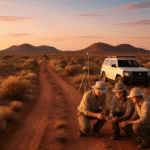Key Takeaways
- Brazil’s new gambling regulation (Bill 3,626/2023) has officially opened one of the world’s largest potential iGaming and sports betting markets, creating a significant land-grab opportunity for major global operators.
- Securing a licence is an arduous and expensive process, with fees up to R$30 million (~£4.5 million), creating high barriers to entry that favour well-capitalised, experienced firms like MGM Resorts International via its BetMGM joint venture.
- BetMGM is actively positioning itself for market entry, a strategic necessity as the North American market matures. Its success hinges on navigating fierce competition and achieving the profitability it has been signalling to investors.
- While MGM Resorts is currently profitable, its digital arm, BetMGM, is still on a path to sustained profitability. Management anticipates achieving positive EBITDA in the latter half of 2024, making a successful, capital-efficient launch in Brazil a critical test.
The recent formalisation of Brazil’s sports betting and iGaming market has triggered a strategic scramble amongst the world’s largest gambling operators. The passage of Bill 3,626/2023 at the close of 2023 was not merely a legislative footnote; it unlocked a market of over 200 million people, transforming it from a vast grey area into a regulated, taxable, and highly coveted territory. For global players, securing one of the first official licences is less a formality and more a foundational move in a new game of high-stakes chess, where the barriers to entry are deliberately steep and the potential rewards, substantial.
The Brazilian Gold Rush: A New Regulatory Framework
Navigating Brazil’s licensing process is, by design, a significant undertaking. The regulatory framework, managed by the Secretariat of Prizes and Bets (SPA), is intended to ensure only the most operationally robust and financially sound companies can participate. This is a far cry from a simple rubber-stamping exercise. Applicants must demonstrate technical and financial soundness, maintain a Brazilian corporate presence, and adhere to stringent compliance and responsible gaming protocols.1
The financial commitment alone acts as a formidable gatekeeper. The licence fee is set at a maximum of R$30 million (approximately £4.5 million or US$5.8 million) for the right to operate up to three brands for a five-year term.2 This is before considering the 12% tax on Gross Gaming Revenue (GGR) and the significant operational costs of launching in a new, continental-sized market. These hurdles effectively filter out smaller, less-capitalised aspirants, leaving the field open to established international giants.
| Metric | Details & Implications |
|---|---|
| Market Size Projection | Potential Gross Gaming Revenue (GGR) estimated to exceed US$5 billion annually within five years.3 |
| Licence Fee | Up to R$30 million (~£4.5m / US$5.8m) for a 5-year term. |
| Taxation Rate | 12% on Gross Gaming Revenue (GGR) payable by operators. |
| Key Requirement | A Brazilian national must hold at least 20% of the local entity’s share capital, mandating local partnerships.4 |
MGM’s Strategic Angle via BetMGM
For MGM Resorts International ($MGMI), the route into Brazil is through BetMGM, its 50/50 joint venture with the British gambling conglomerate Entain. This partnership is strategically crucial, combining MGM’s brand recognition and hospitality assets with Entain’s formidable technology stack and extensive international operating experience, particularly in Latin America through brands like bwin. While public announcements of a definitively *granted* licence are premature, company leadership has been unambiguous about its intentions.
During MGM’s Q1 2024 earnings call, CEO Bill Hornbuckle confirmed that BetMGM is “poised to enter the market upon licensing,” signalling that the necessary groundwork is well underway.5 For BetMGM, Brazil represents more than just another market; it is a vital new frontier for growth as its home market in North America approaches maturity and the competitive intensity continues to compress margins.
A Look Under the Bonnet
The timing of this expansionary push is pertinent. MGM Resorts as a whole is in robust financial health, reporting consolidated net revenues of $4.4 billion and a net income of $217 million in the first quarter of 2024. However, the story for BetMGM is one of progressing towards, but not yet reaching, sustained profitability. The venture posted positive EBITDA in the final two quarters of 2023, but saw a seasonal investment-driven loss in Q1 2024. Management remains confident it will achieve positive EBITDA for the full year 2024.5
This context makes the Brazilian entry both an opportunity and a risk. A successful, cost-effective launch could provide a significant new revenue stream to bolster BetMGM’s bottom line. Conversely, a mismanaged entry, marked by excessive marketing spend in a battle for market share, could delay its path to profitability and strain the resources of its parent companies.
The Competitive Arena and Forward Outlook
BetMGM will not be entering an empty stadium. The Brazilian market is already crowded with grey-market operators who have built significant brand equity over the years. Furthermore, nearly every major global player, from Flutter (FanDuel) and DraftKings to European stalwarts like Bet365, is expected to compete aggressively for a slice of the pie. The requirement for a local partner could also be a deciding factor, with the quality and influence of that partnership potentially providing a crucial competitive edge.
For investors, the narrative surrounding MGM’s Brazilian venture should therefore be one of cautious observation. Securing the licence is the first, albeit critical, step. The true test will be in the execution. Can BetMGM translate its North American brand power into a market with different cultural and consumer dynamics? Can it outmanoeuvre both established local players and its deep-pocketed global rivals?
As a final hypothesis, the successful execution in Brazil may serve as a critical catalyst for the future of the BetMGM joint venture itself. A strong, profitable performance in a major new international market could finally provide the impetus for MGM and Entain to resolve the long-standing question of the venture’s ultimate ownership structure, whether through an acquisition, a spin-off, or another strategic conclusion. For now, all eyes are on securing that golden ticket.
References
1. Baker & McKenzie. (2023). Brazil: What types of activities require a license in your jurisdiction? Global Financial Services Regulatory Guide. Retrieved from https://resourcehub.bakermckenzie.com/en/resources/global-financial-services-regulatory-guide/latin-america/brazil/topics/what-types-of-activities-require-a-license-in-your-jurisdiction
2. Ministry of Finance, Brazil. (2024). Ordinance No. 827, of May 21, 2024. Diário Oficial da União. Defines the conditions for obtaining the fixed-quote betting lottery operating authorization.
3. SBC Noticias. (2024). IBJR estimates that the regulated betting market in Brazil could reach USD 5 billion in GGR. Retrieved from industry reports and analysis on Brazilian market potential.
4. VIXIO GamblingCompliance. (2024). Brazil: Key Regulatory Details. Analysis of Law 14,790/2023. This is a common point of analysis in industry reports on the new law.
5. MGM Resorts International. (2024, May 1). MGM Resorts International Reports First Quarter 2024 Financial And Operating Results. [Press release]. Retrieved from https://investors.mgmresorts.com/investors/news-releases/press-release-details/2024/MGM-Resorts-International-Reports-First-Quarter-2024-Financial-And-Operating-Results/default.aspx
6. @realroseceline. (2024, July 7). [This is a big deal because a license in Brazil is difficult to get and very few companies have it. $MGMI]. Retrieved from https://x.com/realroseceline/status/1876059984997552585














